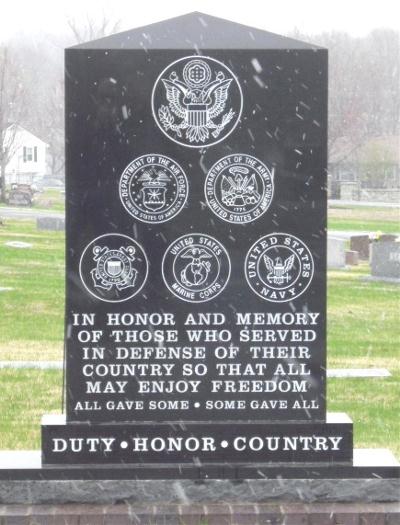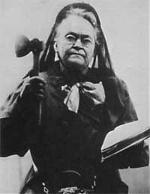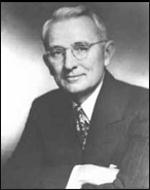Notable Internments
 Since its founding in 1875, the Belton Cemetery has been the burial place for the successive generations of the people who made their home in the community at some point in their lives. You can use our Find a Grave feature to find the gravesite of someone buried in the cemetery and some basic information about the person.
Since its founding in 1875, the Belton Cemetery has been the burial place for the successive generations of the people who made their home in the community at some point in their lives. You can use our Find a Grave feature to find the gravesite of someone buried in the cemetery and some basic information about the person.
Among those buried in the cemetery are the heroes of the community – the veterans. The cemetery has graves of veterans of the Civil War (both Confederate and Union), the Spanish American War, World War I, World War II, the Korean War, the Vietnam War and the Iraq War. On Memorial Day, the Cemetery Association ensures a flag is placed on each veteran’s grave.
The co-founder of Belton, George W. Scott (April 11, 1835-January 10, 1922), is buried in the cemetery and succeeding generations of his family are buried near him. The most recent was in 2009 with the burial of his great-granddaughter Francis Scott Dunlap (June 10, 1930-March 28, 2009). Miss Dunlap was buried beside her parents, Margret and Richard Dunlap, and her maternal grandparents, Robert and Fannie Wilson, the daughter of George Scott.
The largest monument in the cemetery marks the grave of George Hope, who operated the first lumberyard in Belton. His wife, Elanor, is buried beside him.
The Belton Cemetery is also the burial place of two people with ties to the community who were famous internationally: Carry Nation and Dale Carnegie.
 Carry Amelia Moore Nation (November 25, 1846-June 9, 1911) was a leader of the temperance movement in the late 19th and early 20th centuries. Mrs. Nation was renowned for her choice of vandalism to promote her opposition to the sale and consumption of alcohol. Indeed, she once described herself as "a bulldog running along at the feet of Jesus, barking at what He doesn't like" and claimed a divine ordination to promote temperance by smashing up bars, which she did to scores in Kansas, Missouri and elsewhere. After her numerous arrests, she paid her fines from the sales of souvenir hatchets and photos and from fees from lecture tours, which took her as far as England, where patrons at one engagement in London threw eggs at her to show their displeasure with her stances. However, her efforts eventually led to Prohibition, which was a nationwide constitutional ban on the production, importation, transportation and sale of alcoholic beverages from 1920 to 1933. Like many of the early settlers of Cass County, Mrs. Nation’s family came from Kentucky, where she was born. She grew up on a farm south of Belton near Peculiar. She is buried alongside her parents. Her tombstone is inscribed, “Faithful to the Cause of Prohibition. ‘She Hath Done What She Could.’ ”
Carry Amelia Moore Nation (November 25, 1846-June 9, 1911) was a leader of the temperance movement in the late 19th and early 20th centuries. Mrs. Nation was renowned for her choice of vandalism to promote her opposition to the sale and consumption of alcohol. Indeed, she once described herself as "a bulldog running along at the feet of Jesus, barking at what He doesn't like" and claimed a divine ordination to promote temperance by smashing up bars, which she did to scores in Kansas, Missouri and elsewhere. After her numerous arrests, she paid her fines from the sales of souvenir hatchets and photos and from fees from lecture tours, which took her as far as England, where patrons at one engagement in London threw eggs at her to show their displeasure with her stances. However, her efforts eventually led to Prohibition, which was a nationwide constitutional ban on the production, importation, transportation and sale of alcoholic beverages from 1920 to 1933. Like many of the early settlers of Cass County, Mrs. Nation’s family came from Kentucky, where she was born. She grew up on a farm south of Belton near Peculiar. She is buried alongside her parents. Her tombstone is inscribed, “Faithful to the Cause of Prohibition. ‘She Hath Done What She Could.’ ”
 Dale Breckenridge Carnegie (November 24, 1888 – November 1, 1955) is best known for his book How to Win Friends and Influence People, which was published in 1936 and became a bestseller; it still remains in print. He was a writer, a lecturer and the developer of famous courses in self-improvement, salesmanship, corporate training, public speaking and interpersonal skills that are still taught the world over. Mr. Carnegie was born in Maryville in northwest Missouri but later claimed Belton as his hometown after his parents resettled on a farm just north of Belton when he was 21. His parents lived the remainder of their lives in community and are also buried in the Belton Cemetery. However, their tombstones are marked with the family name spelled as Carnagey. Near the beginning of his career, Mr. Carnegie changed his spelling to avoid issues because people defaulted to spelling his name like the more famous Andrew Carnegie. The street that now runs alongside the family’s original home in Belton and bears the family name actually has signposts with both spellings.
Dale Breckenridge Carnegie (November 24, 1888 – November 1, 1955) is best known for his book How to Win Friends and Influence People, which was published in 1936 and became a bestseller; it still remains in print. He was a writer, a lecturer and the developer of famous courses in self-improvement, salesmanship, corporate training, public speaking and interpersonal skills that are still taught the world over. Mr. Carnegie was born in Maryville in northwest Missouri but later claimed Belton as his hometown after his parents resettled on a farm just north of Belton when he was 21. His parents lived the remainder of their lives in community and are also buried in the Belton Cemetery. However, their tombstones are marked with the family name spelled as Carnagey. Near the beginning of his career, Mr. Carnegie changed his spelling to avoid issues because people defaulted to spelling his name like the more famous Andrew Carnegie. The street that now runs alongside the family’s original home in Belton and bears the family name actually has signposts with both spellings.